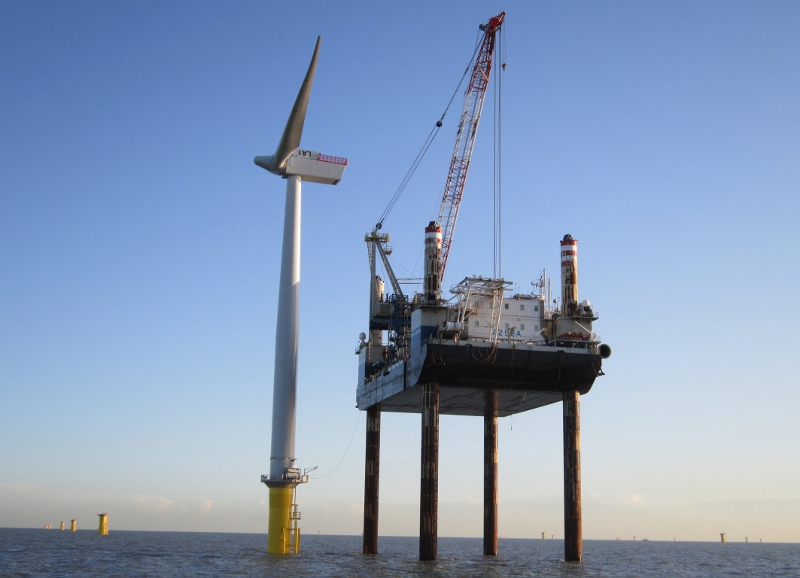The Bureau of Ocean Energy Management relied on inadequate geophysical and geotechnical surveys when it issued an offshore wind energy lease for the Cape Wind project off Massachusetts, a federal appeals court ruled this week.
But the court decided against vacating the lease, instead directing BOEM to obtain “adequate geological surveys” before allowing any construction of the proposed 130-turbine project between Cape Cod and Nantucket.
“We do not think the Bureau has ‘fulfilled its duty to take a hard look at the geological and geophysical environment’ in Nantucket Sound” as lawyers for the government claim, a three-judge panel with the District of Columbia Circuit Court of Appeals wrote in the July 5 decision.
The original lawsuit was brought against BOEM and other federal agencies by Public Employees for Environmental Responsibility, the Alliance to Protect Nantucket Sound and other opponents of Cape Wind, who accused government regulators of violating half a dozen laws including the National Environmental Policy Act. In March 2014 a federal district court found in favor of the agencies and dismissed the complaint.
All sides claimed a degree of victory in the appeals decision, which could allow the long-troubled project to continue but orders the agencies to redress some critics’ complaints. The appeals court found the Coast Guard did its job analyzing the potential impact of turbines on navigation. But like BOEM, the U.S. Fish and Wildlife Service must go back and reassess whether turbines would need to be shut down during migrations of endangered shorebirds.
“As a result, Cape Wind must go back to the drawing board and supplement their Environmental Impact Statement with adequate data to properly assess whether the project can be safely built, given seafloor conditions in Nantucket Sound,” said Audra Parker, president of the Alliance to Protect Nantucket Sound.
"However, the Court today did not terminate Cape Wind's lease to 46 square miles of Nantucket Sound…So long as that 28- year lease can be revived, Cape Wind's developers will continue to press ahead with attempts to either build their massive 130 turbine project or sell that lease to another potential developer,” Parker said.
In a statement Cape Wind CEO Jim Gordon said the new ruling still means the “bulk of baseless issues that opponents have raised over the years are put to bed,” and will not cause significant new delays for the project.
The judges spelled that out in their opinion:
“Delaying construction or requiring Cape Wind to redo the regulatory approval process could be quite costly. The project has slogged through state and federal courts and agencies for more than a decade,” the judges wrote. Meanwhile, Massachusetts’s renewable energy requirements continue to increase.
“Allowing the project to move forward could help meet these requirements. On the other hand, it would be imprudent to allow Cape Wind to begin construction before it can ‘ensure that the seafloor [is] able to support’ its facilities.”
Gordon’s venture was once touted as likely to be the first large-scale U.S. offshore wind farm development. But it swiftly ran up against local opposition from Cape Cod homeowners, towns, fishermen, Native American groups and others, with delays that prompted two potential bulk power customers to back out of agreements with Cape Wind.





